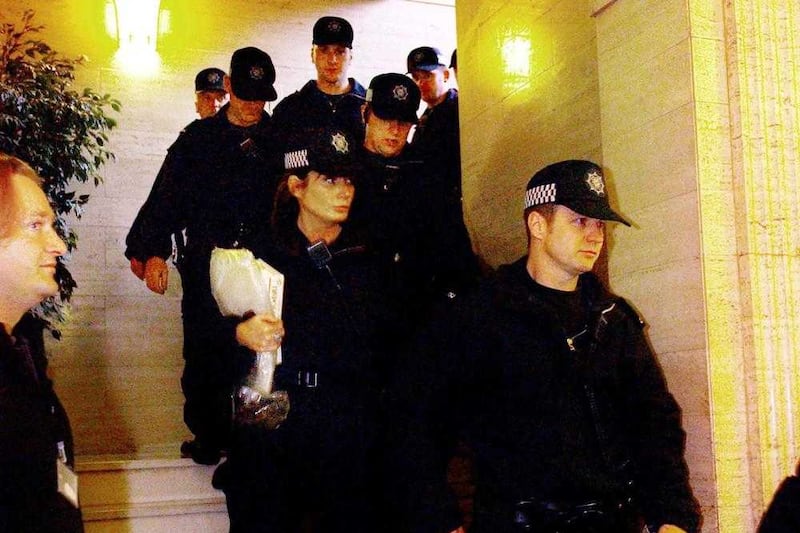The UK Government will not stand by and allow public services to deteriorate in Northern Ireland while Stormont remains suspended, Chris Heaton-Harris has said.
The Northern Ireland Secretary said he was preparing a budget to support civil servants in stabilising public finances if the powersharing impasse is not resolved, but warned there must be a limit to how far the Government could go.
Talks between Mr Heaton-Harris and Northern Ireland political parties over finances, which included the offer of a £3.3 billion financial package, broke up at Hillsborough Castle earlier this month without any agreement to restore the devolved Assembly and Executive.
Mr Heaton-Harris had also said that his talks with the DUP over their concerns about post-Brexit trading arrangements had concluded. However, DUP leader Sir Jeffrey Donaldson has insisted the negotiations will continue.
The powersharing institutions have been suspended for almost two years as the unionist party seeks further legislative assurances from the Government of Northern Ireland’s trading position within the UK.
Under current rules Mr Heaton-Harris is obliged to call new Assembly elections on January 18 if the powersharing Assembly has not returned.
But writing in the Belfast Telegraph, the Northern Ireland Secretary said he would not be treating that date as a deadline.
He said: “I am considering all options carefully, however, I want Stormont to return as soon as possible so I am not treating this date as a target and will be relentlessly working with all parties to find a way forward.
“January 18 is also the date when thousands of public sector workers will go on strike over pay. A returned Executive could stop these strikes and the disruption it brings to people.
“By getting back to work they will unlock the £584 million made available by the UK Government to address public sector pay.
“People in Northern Ireland expect and deserve devolved government back as soon as possible, to make use of the financial package we have put on the table.”
He added: “In its absence, however, the UK Government cannot and will not just stand by and allow public services and finances to decline further.
“Which is why, just like last year, we are preparing a pragmatic and reasonable approach to support the Northern Ireland Civil Service in stabilising public finances and services via a sustainable budget, should the Executive not be back in place to do so itself.
“But we are clear that there must be a limit to how far the UK Government can go without an Executive in place.
“That is because the financial package we have offered requires decisions on how to improve and modernise the public services and these must be taken by locally-elected politicians with the mandate to do so.
“It should not just be for local politicians to dispense funding from the UK Government.
“They should take active and sometimes difficult decisions about where priorities lie, because they know the place and the needs of their constituents better than anyone else.”









